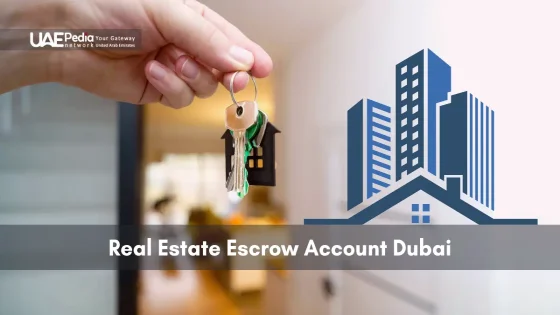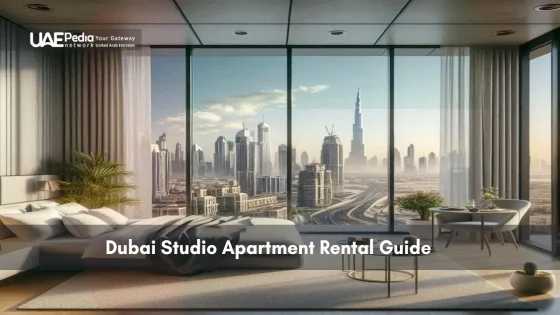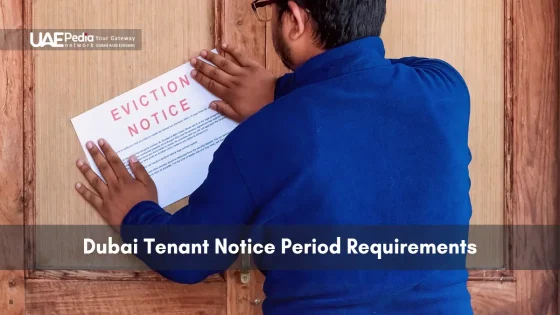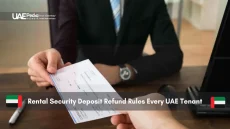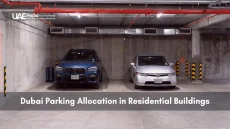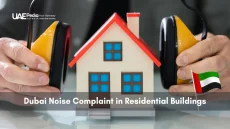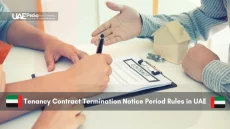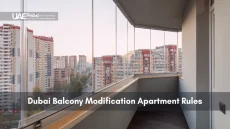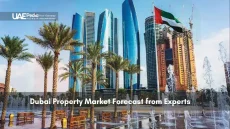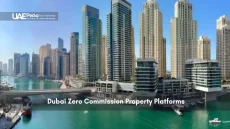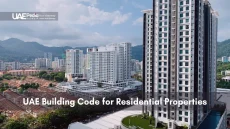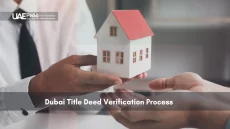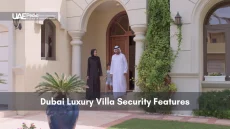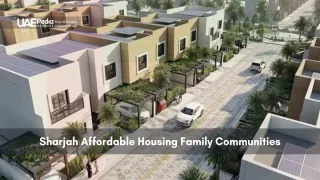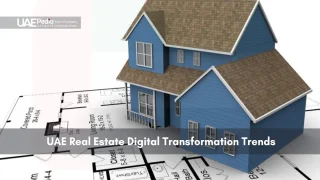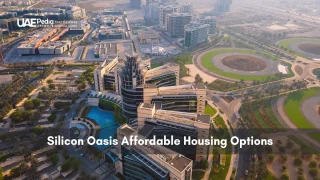What if your dream home investment could come with built-in financial armor? Since 2007, Dubai’s forward-thinking regulations have transformed how buyers and developers collaborate—creating trust through legally mandated payment guardianship.
These protective systems—overseen by the Dubai Land Department and RERA—act as neutral referees. Funds remain locked until construction milestones are met, ensuring fairness for both parties. This approach has fueled the city’s reputation as a global property hotspot, blending desert ambition with concrete safeguards.
You’ll discover how local laws like No. 7 of 2007 and No. 13 of 2017 create clarity in complex deals. We’ll explore why real estate funds here operate differently, from document checks to phased payouts. Whether you’re eyeing a waterfront apartment or a downtown office space, understanding these mechanics turns uncertainty into confidence.
Dubai’s escrow framework mandates that all off-plan project payments be held in third-party accounts under Law No. 7 of 2007 (enhanced by Law No. 13 of 2017), with the Dubai Land Department and RERA overseeing each phase. Funds are released only after independent verification of construction milestones—such as foundation completion or structural inspections—ensuring that developers cannot access payments until predefined conditions are met. This legally enforced payment guardianship creates a neutral mechanism that balances risk between buyers and builders and has become a benchmark for transparent real estate transactions.
The system operates through the Oqood digital portal, where developers register projects, submit bank-approved payment schedules and architectural plans, and appoint licensed trustees to manage disbursements. Each release triggers only after regulatory approval of progress reports, soil compaction data, or completion certificates. By tying fund flows to verifiable construction data and subjecting transactions to periodic audits, Dubai’s escrow accounts reduce financial exposure, enforce contractual compliance and bolster investor confidence in off-plan developments.
Quick insights:
- Payment protection isn’t optional—it’s required for all off-plan projects
- Developers only access funds after proving progress, reducing risk
Introduction to Escrow Accounts in Dubai
Imagine a safety deposit box for your property payments—where funds stay protected until everyone fulfills their promises. That’s the essence of escrow services here. These neutral financial tools keep transactions fair, holding money until construction milestones or contractual terms are met.
How Trust Gets Built Into Payments
Dubai’s property market thrives on transparency. Escrow systems act like referees between buyers and developers. For example, when you invest in a high-rise project, your payments don’t go directly to the builder. Instead, they’re held by third-party custodians until specific phases—like completing foundations or installing windows—are verified.
| Feature | Traditional Payment | Escrow Process |
|---|---|---|
| Fund Release | Immediate, full access | Phased, conditional |
| Risk Level | High for buyers | Balanced for both parties |
| Oversight | Limited | RERA/DLD monitoring |
Major developers like Emaar use these accounts to build buyer confidence. RERA (Real Estate Regulatory Agency) and the Dubai Land Department audit transactions, ensuring no funds vanish into unfinished projects. This system emerged after Dubai’s 2008 market correction—now it’s a global benchmark.
Why does this matter? For investors, it means fewer sleepless nights. Your capital stays guarded until steel meets concrete. For builders, it’s a credibility badge that attracts serious partners. Together, these safeguards keep Dubai’s skyline rising—one verified payment at a time.
Read More:
Real Estate Regulatory Framework and Legal Obligations
Ever wondered how Dubai keeps its skyline growing while protecting your investment? The answer lies in its ironclad legal playbook. Think of these rules as traffic lights for property deals—they keep everyone moving smoothly toward shared goals.
Rulebooks That Build Trust
Two laws form the backbone of payment security here. Law No. 7 (2007) requires builders to park all buyer payments in third-party safes before breaking ground. Its 2017 upgrade (Law No. 13) added tighter audits and mandatory progress reports. Together, they’re like financial seatbelts—you barely notice them until they save your wallet.
| Law Feature | 2007 Version | 2017 Update |
|---|---|---|
| Account Setup | Mandatory for new projects | Stricter bank approvals |
| Fund Access | Milestone-based | DLD pre-approval required |
| Penalties | Fines up to AED 50k | License revocation added |
Who Does What (And Why It Matters)
Builders must register projects with RERA, secure permits, and provide quarterly updates. One developer learned this hard way in 2019—delayed paperwork froze their funds for six months. You’ve got skin in the game too: review contracts line by line, verify payment links, and flag delays within 30 days.
This dance between rules and responsibility keeps Dubai’s property scene buzzing. As RERA’s director once put it: “Transparency isn’t optional—it’s the price of playing here.” Whether you’re pouring concrete or signing checks, everyone’s accountable.
Real Estate Escrow Account Dubai: Key Functions and Processes
How does Dubai ensure your payments grow alongside the skyscraper you’re eyeing? The answer lies in a carefully choreographed dance between builders, banks, and regulators—all moving to the rhythm of the Oqood platform. This digital hub transforms complex financial safeguards into a smooth, step-by-step journey for Off-Plan Purchases.
Blueprint for Secure Setup
Developers kick things off by registering their project on the Oqood portal—Dubai’s digital gateway for property approvals. Think of it like applying for a building permit, but with extra layers of financial checks. They’ll need to upload:
- Detailed construction timelines
- Approved architectural plans
- Bank-approved payment schedules
Once RERA greenlights the proposal, a dedicated financial guardian (usually a licensed bank) gets assigned. As one project manager told us: “It’s like setting up a joint Instagram account—both sides can see the activity, but neither controls it alone.”
Money Meets Milestones
Your payments don’t just sit idle—they’re released in sync with visible progress. Here’s how it works:
| Phase | Trigger | Proof Required |
|---|---|---|
| Foundation | 20% release | Soil compaction reports |
| Structure | 35% release | Steel framing inspections |
| Handover | Final 15% | DLD completion certificate |
Trustees physically verify each stage before funds flow. Last year, this system stopped $23M from being released for a delayed marina project—money that stayed protected until dredging finished. For investors, it means your cash only moves when the cranes do.
Benefits of Using Escrow Accounts for Off-Plan Developments
Think of these safeguards as construction helmets for your capital—visible, vital, and non-negotiable. When you engage in off-plan ventures, locked payment systems act like progress meters, turning abstract promises into trackable actions.
Enhanced Security and Transparency in Transactions
Imagine your funds working like a progress bar—only advancing when builders hit verified checkpoints. One waterfront condo project in 2022 saw payments paused when inspections revealed delayed plumbing installations. The money stayed protected until pipes met code.
Three pillars make this work:
- Milestone Magic: Builders can’t access cash until independent auditors confirm completion of phases
- Paper Trails: Every dirham transfer gets logged in RERA’s digital ledger, visible to both parties
- Emergency Brakes: If timelines slip, funds remain frozen until issues resolve
A project manager from Nakheel Properties shared: “These systems transformed how we collaborate. Buyers see steel rising alongside their payment history—it’s trust you can touch.”
For investors, this means fewer “what if” scenarios. Your capital stays shielded until cranes move. Developers benefit too—transparent processes attract serious partners. It’s a win-win framework where accountability isn’t just encouraged; it’s engineered into every transaction.
Setting Up Your Escrow Account: A Step-by-Step Guide
Imagine your property payments getting a digital bodyguard—that’s Dubai’s Oqood portal in action. This streamlined platform turns complex financial setups into a series of simple clicks. Let’s break down the essentials for developers and buyers navigating this process.
Your Digital Roadmap to Secure Transactions
First-time users often compare the Oqood interface to online banking—familiar layouts with clear navigation menus. Here’s how to get started:
| Step | Action | Pro Tip |
|---|---|---|
| 1 | Create profile using Emirates ID | Use developer/buyer-specific email |
| 2 | Select “New Application” under services | Double-check project RERA number |
| 3 | Upload payment schedule PDF | Highlight milestone dates in yellow |
A Nakheel project manager shared: “We guide clients through screen-sharing sessions—most grasp the system faster than ordering ride-hail apps!”
Paperwork That Builds Trust
Third-party guardians (called trustees) verify these four essentials before activating your arrangement:
| Document | Purpose | Why It Matters |
|---|---|---|
| Approved Payment Plan | Matches construction phases | Prevents arbitrary fund requests |
| Developer Trade License | Confirms legal operation | Filters out unapproved builders |
| Engineer’s Progress Report | Validates current stage | Stops payments for stalled projects |
Here’s the good news: once uploaded, the portal’s AI cross-references data with DLD records. Approval typically takes 3-5 working days if all boxes are checked. One recent user reported: “It felt like passing through airport security—thorough, but you know you’re protected.”
Local guardians like Mashreq Bank perform final validations. They physically visit sites, comparing blueprints with actual steel beams before releasing funds. This dual-layer check—digital and physical—keeps everyone’s interests aligned.
Best Practices for Investors and Developers
What separates a smooth property journey from a rocky desert trail? Your toolkit matters. Savvy players in Dubai’s dynamic market combine sharp research with protective systems—turning uncertainty into opportunity.
Assessing Developer Credibility and Past Performance
Think of builders like restaurant chefs—their previous dishes predict your meal. Dig into their portfolio:
| Credibility Factor | Green Flags | Red Flags |
|---|---|---|
| Project History | 5+ completed developments | Ghosted blueprints |
| Client Feedback | Glowing Google reviews | Radio silence post-sale |
| Financial Health | Audited balance sheets | Overdue contractor bills |
A project manager shared: “We invite potential buyers to walk through our finished towers—nothing builds trust like touchable results.”
Conducting Due Diligence for Secure Investments
Your checklist should be tighter than airport security. Start here:
- Verify RERA registration numbers on the official portal
- Request bank statements showing escrow account balances
- Confirm phased payment triggers align with visible progress
| Step | Action | Purpose |
|---|---|---|
| 1 | License Check | Filters fly-by-night operators |
| 2 | Site Visit | Matches cranes to promises |
| 3 | Contract Review | Spotlights hidden clauses |
These steps transform hope into strategy. When funds move only under certain conditions, your money grows roots before the building does.
Addressing Common Concerns and Risks with Escrow Services
Trust but verify—that’s the golden rule when safeguarding property investments through managed payment systems. While these structures dramatically reduce financial exposure, savvy participants still ask: “What if someone tries to game the system?”
Fraud Prevention and Ensuring Adequate Protections
Modern safeguards function like digital watchdogs. Regulatory bodies require third-party guardians to:
- Cross-check payment requests against construction photos
- Maintain separate ledgers for each phase
- Alert both parties about irregular activity
| Risk Type | Common Tactics | Protective Measures |
|---|---|---|
| Phantom Progress | Fake site images | On-ground inspector verification |
| Double-Dipping | Multiple fund claims | Blockchain transaction tracking |
| Exit Scams | Sudden company closures | Mandatory insurance bonds |
One high-rise project in Business Bay saw payments halted last year when inspectors noticed mismatched window installations. Funds stayed protected until the developer corrected the issue—no lawsuits needed.
When selecting a service provider:
- Confirm their RERA accreditation status
- Review audit history for past projects
- Compare fee structures across three options
A veteran consultant shared: “We’ve designed these systems so even skeptics sleep soundly. Your money moves only when bricks do.” With layered checks and automatic alerts, both sides gain confidence that progress—not promises—drives each transaction.
Check out the below:
Final Thoughts on Streamlining Your Real Estate Journey in Dubai
Charting a course through Dubai’s dynamic market just got simpler. By anchoring transactions to phased payment guardianship, the city’s frameworks turn uncertainty into clear roadmaps. Think of these systems as your co-pilot—they verify every turn before you accelerate.
Three principles make this work: ironclad regulatory oversight, progress-tied fund releases, and transparent document trails. Builders earn trust through verified actions, not promises. For investors, it means your capital stays shielded until steel meets sand.
Before diving in, treat due diligence like packing for a desert trek—check every supply. Review agreements line by line, validate third-party credentials, and track milestones through official portals. One recent buyer shared: “Seeing my payments unlock only after inspections gave me tour-guide confidence.”
Ready to explore? With these safeguards as your compass, Dubai’s skyline becomes less intimidating and more inviting. Every tower starts with a blueprint—your journey begins with informed choices.
Dubai’s Real Estate Regulatory Agency (RERA) requires developers to use escrow accounts to protect buyer funds. This ensures payments are only released when construction milestones are met, reducing risks like project delays or mismanagement.
Funds are held by a neutral third-party bank until agreed-upon conditions—like construction progress or handover—are verified. This system blocks unauthorized withdrawals, ensuring money flows only when contractual obligations are fulfilled.
Developers must submit project approvals from RERA, a valid trade license, and a signed escrow agreement. Buyers receive access to track payments and milestones through the portal once the account is active.
Yes! Escrow agreements mandate refunds if projects stall or get canceled. RERA also steps in to mediate disputes, ensuring buyers aren’t left stranded without recourse.
RERA vets developers’ financial stability, construction track records, and compliance history. Only approved firms receive escrow privileges, adding a layer of trust for buyers eyeing off-plan projects.
Payments are tied to pre-defined milestones—like completing foundations or securing occupancy certificates. Buyers and banks jointly approve each stage before funds move, keeping everyone aligned.
Absolutely. RERA imposes fines, license suspensions, or legal action against developers violating escrow rules. This strict oversight helps maintain Dubai’s reputation as a secure investment hub.
Check RERA’s official portal for the project’s escrow registration status. Always request the account number and cross-verify payment instructions with the bank holding the funds.
